The Most Economical Method for Heat Proofing Roofs
Global economic issues are creating a gloomy picture for less-developed states like Pakistan. Inflation has taken a toll of the average consumer who wants a reprieve in all work-related aspects, including maintenance. To ensure low-cost solutions, this blog will provide the most inexpensive heat-proofing solution. And, if you find it feasible, connect with Lakhwa Chemical Services.
Why is Heat Proofing necessary?
Develop an energy-efficient structure if you reside in a hot city like Karachi. Conceal your walls, ceilings, roofs, and attics with durable insulation. Moreover, chilled water piping, sound equipment, and HVAC ducts can also be covered. There are various benefits of heat proofing, both for individuals and the global environment.
Following are some benefits of heat insulation:
- Enhance process performance
- Reduce greenhouse gas emissions
- Control condensation
- Reduce noise levels
- Maximize ROI
Different Methods of Heat Proofing
- Liquid Thermal Insulation
Liquid heat insulation provides a varied composition of chemicals designed to produce a strong barrier on different surfaces and materials, such as pipes, air ducts, and roofs. The thickness of the coat is measured precisely before the application. The process works on the principles of Heat Mirror: It reflects the heat from the surface and forms a constant temperature barrier.
According to experts, thermal insulation paint can reflect heat through direct infrared radiation and high temperature. So, it is not convenient to apply it in closed structures. Moreover, it is composed of fillers and binder materials that work better in open air environments.
Properties
- Light Reflection: 85 – 90%
- Light Diffusion: 90 – 95%
- Heat Conductivity Coefficient: 0.001 – 0.002 W/mK
- Adhesion Strength: Strong with metals and concrete
- Breaking strength: 70 – 80 kgf/cm2
- Cost: 4000-5000 rupees (5kg bucket)
N.B: The cost of liquid heat-paint depends upon the weight of the container.
Read More
How to Find Top Water and Heat Proofing Services in Karachi?
Types of Roof Heat Proofing in Karachi
Cost Saving through Outer Wall Heat Proofing
- Polyiso-Cyanurate
Also known as PIR, it is an advanced form of Polyurethane (PUR). It is a rigid, foam-like insulation made from uniform cells. The foam is pressed between two facers that provide distinctive characteristics and insulation properties. It is used on ceilings, walls, roofs, and specialty applications in residential and commercial buildings.
Properties
- High R-value compared to other products
- Excellent performance in tests
- Steady over a wide temperature range (-100oF – 250oF)
- Used as an element in roofing systems with hot asphalt
- Cost: On average, a 50mm – 200mm board costs 2000-2500 rupees.
N.B: The cost depends on the board’s thickness.
- Extruded Polystyrene
Classified as a thermoplastic material, extruded polystyrene (XPS) is ideal for building and commercial applications. It is made from beads of polystyrene, which when added to the mould, expand and fuse together. The irregular gaps between the foam permit moisture and air to permeate, making it inflexible and spacious.
Properties
- Heat Transfer Coefficient: 0.03- 0.034 W/m2K
- R-value: 5.0/inch
- Inhibits mildew growth
- Corrosion and chemical-resistant
- Environmental-friendly
- Cost: On average, a 25-50mm board costs 300/m2
N.B: The cost depends on the board’s thickness
Read More
How Does Water Damage Repair Service Cost in Pakistan?
Heat Proofing Services in Pakistan
Heat Proofing Solutions in Pakistan: Benefits for Industries
- Expanded Polystyrene
Expanded Polystyrene (EPS) or Styrofoam is a white plastic foam material made from solid beads of polystyrene. It is a lightweight material that offers high thermal resistance, mechanical strength, and dimensional stability. This material does not leach substances and release chemicals in the environment.
Properties
- Service temperature range: 167oF
- Thermal conductivity: 0.030 – 0.040 W/m. K
- Modulus of elasticity: 320-360
- Tensile strength: 18-22
- Flexural strength: 40-50
- Cost: On average, an 8×4 sheet of 1” thickness costs 480-600 rupees.
N.B: The cost depends on the board’s thickness
- EPDM
Ethylene Propylene Diene Monomer is a synthetic material used in different applications, such as pipe seals, gaskets, and roofing sheets. It is water and abrasion-resistant. Moreover, it works well under harsh chemicals like alkalis, acids, and ketones. EPDM sheets are supplied in rolls or customized pieces.
Properties
- Hardness range: 30-90 Shore A
- Tensile strength: 500 – 2500Psi
- Wide temperature range: -60oF – 300oF
- Radiation-resistant
- Cost: On average, 1kg of EPDM sheet costs 1000-1500 rupees.
N.B. The cost depends on the rubber’s weight.
So, which roofing solution will you opt for? Wait, don’t rush for the product. Consult experts from Lakhwa Chemical Services and decide thereaft
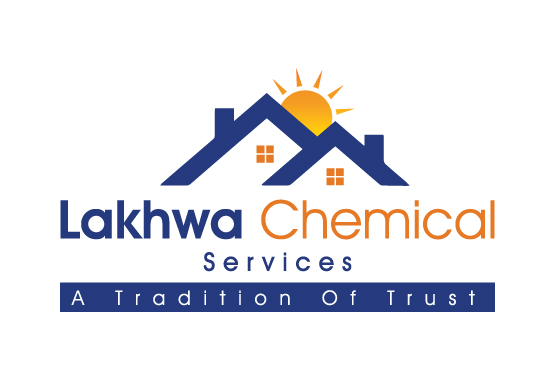
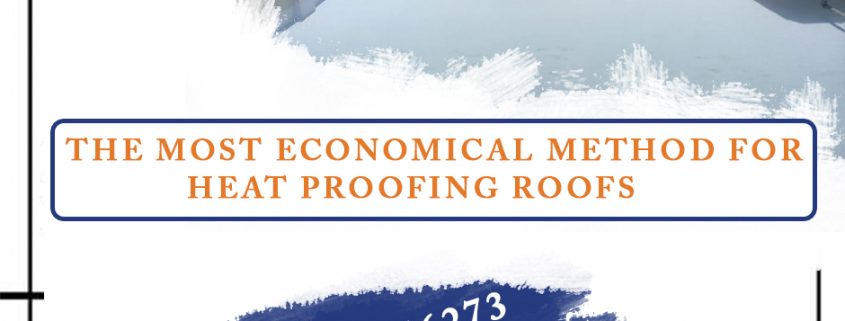
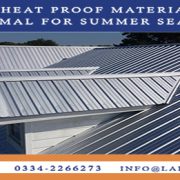
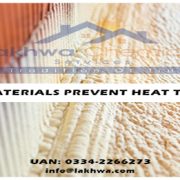
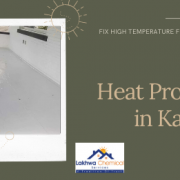
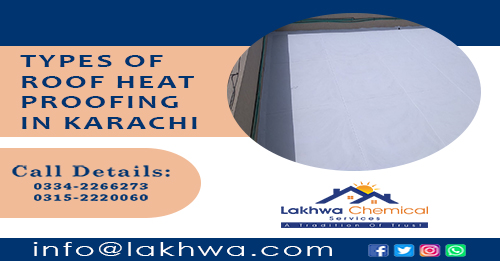
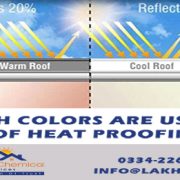

Leave a Reply
Want to join the discussion?Feel free to contribute!